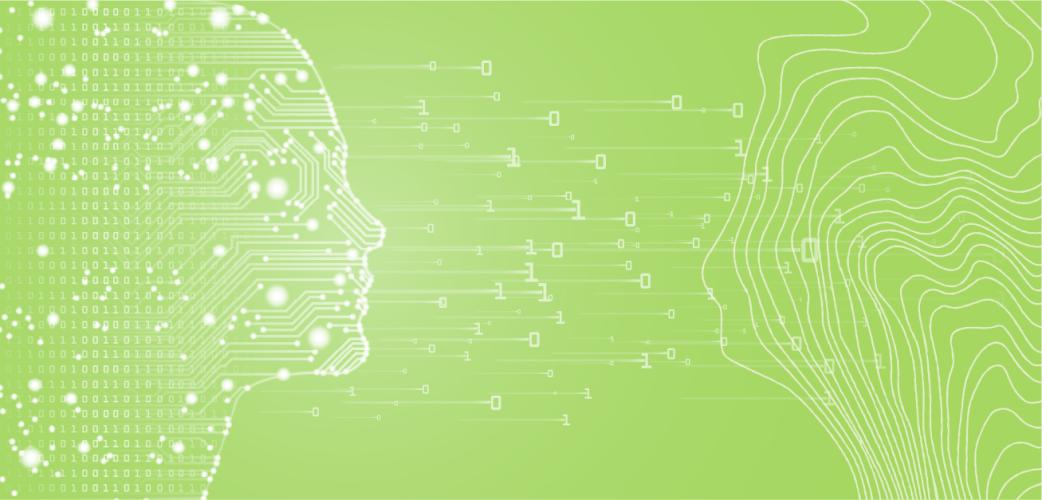
How do companies use AI? Navigating artificial intelligence trends in business

The world of business is a constantly innovative field, including the lately popularized field of artificial intelligence, or AI.
AI is already reshaping companies and redefining rules in industries. Whether it is used to automate business processes or data analysis, AI is changing traditional business practices — and OHIO is preparing its students every step of the way.
Whether you are an incoming business student, inspiring entrepreneur or an adept professional, understanding AI and the impact on businesses is now essential along with the ethical processes.
Uses of AI in business
AI has been around for longer than we might think, according to Dr. Jim Strode, associate dean of undergraduate programs in the College of Business, and Dr. Brian Hoyt, professor of management and director of the Bachelor of Science in Business (BSB) program. From human resource job filters to customer service chatbots, businesses have been using AI to improve products and streamline processes for years.
“Product writing is using AI. Through machine learning, AI writes it, they look at profiles of customers that buy the product, and then they rewrite the product descriptions,” Hoyt said.
Now, however, AI is becoming more publicly available with free tools such as ChatGPT and Google’s Bard. When it comes to businesses in any industry, running smoothly and efficiently can be seen as top priorities. With the aid of AI, efficiency in the workplace is starting to look different.
“AI is automating some processes that have been high-level thinking labor,” Strode said. “For example, something we wouldn’t rely necessarily on a computer to do for us before, but now we’re getting to a point with the algorithms and the amount of information out there that it could be replicated. These tools are being used by businesses not necessarily to replace [workers], but rather supplement and bring productivity in the workplace to another level.”
Hoyt notes there are four groups of artificial intelligence users to pay attention to: technology experts, government officials, early adopters and influencers.
“There’s a lot to sift through, but I think the direction of AI will come from those four categories. Whether it’s in marketing, HR, or other business practices, we can learn more [from each of them] and examine best practices for the future,” Hoyt said.
Adapting to businesses using AI
Innovators and early adopters are the first two groups to try out new technological advances. Influencers may not always be the first but can advocate and showcase to others the benefits and use of technology or in this case, AI.
AI isn’t the first innovation to be utilized across multiple industries – Hoyt recalls the surge of business analytics.
“AI is going to trend very much like business analytics did, where all of a sudden organizations are going ‘we have all this big data available’ but nobody knew where it was going or how to analyze it,” Hoyt said. “Their first response was to establish a new Business Analytics Department to better understand the integration of analytics into their organization. Then those companies needed people who understood the algorithms and the data in each functional department – such as marketing, HR, and so on. Finally, jobs were in demand for people with that analytics skillset. AI is likely to follow that sequence.”
Like before, business students are ready to be equipped with the desired skillset companies are after.
“When we look at how our business students are going to adapt and evolve, I’d say they have always adapted and evolved. Business students are sometimes your early adopters when it comes to these new technologies because the marketplace demands it,” Strode said.
Students ready for the companies of today and tomorrow
The College of Business is dedicated to teaching future innovative business leaders, which means being ready to discuss new advances in business. While many programs are set on campus, there is also an option for those wanting to develop their skills remotely – the BSB program.
“As we move forward, we’re building a degree through ideas of flexibility and agility. We can’t put a program together and expect it’s going to look like that for 20 years, or even 10 years,” Hoyt said.
Through the BSB program, students will be equipped with the business skills for the career they want, which includes learning how to best implement AI in the workplace.
“A business degree is so broadly applicable,” Robert Föehl, J.D., executive-in-residence for business law and ethics, said. “It’s going to be helpful in not only for-profit organizations, but virtually any endeavor you want to engage in – non-profits organizations, media organizations, universities, government agencies, healthcare services, and so on.”
The BSB program is an 100% fully online business degree program, designed to help students at any career stage be prepared for careers in marketing, human resources, supply chain management or technical project management. Students are also able to start the program on one of OHIO’s regional campuses and finish it online.
Career opportunities and admission requirements for the BSB program are available to view on its webpage.
